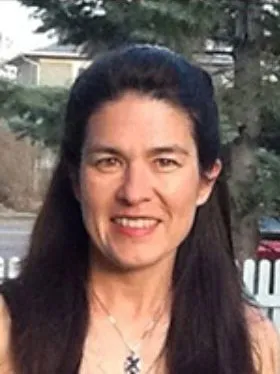

Lisa Hines, ScD
Professor, Co-Director UCCS Teach Department of BiologyEducation
- 2001-2004 Post-doctoral training, Harvard Institute of Proteomics, Harvard Medical School, Cambridge, MA
- 2001 Sc.D., Epidemiology, Harvard University, School of Public Health, Boston, MA
- 1994 B.S., Animal Physiology and Neuroscience, University of California, San Diego, CA
Research Interests
I received interdisciplinary training in the areas of epidemiology, genetics and proteomics. My research goals are: 1) to utilize my interdisciplinary training to identify unique strategies to elucidate the interacting genetic and environmental factors that contribute to complex disease etiology and 2) to elucidate factors that contribute to ethnic disparities in disease occurrence and outcomes, and 3) to apply this knowledge to implement more effective disease prevention and treatment programs. Currently, I am primarily involved with breast cancer research. Differences in breast cancer incidence rates and prognosis are observed across ethnic and racial populations, but the reasons for the observed disparities are not completely understood. My research efforts are focused on studying breast cancer among different racial/ethnic populations, which will hopefully provide a new perspective on breast cancer etiology that could ultimately contribute to the development of more effective therapies for all breast cancer patients.
Selected Publications
- Hines LM, Risendal B, Slattery ML, Guiliano A, Baumgartner K, Byers T. A comparative analysis of breast cancer risk factors among Hispanic and non-Hispanic White women, Cancer 2010 Jul 1;116(13):3215-23.
- Hines LM, Risendal B, Slattery ML, Baumgartner K, Giuliano A, Byers T. Differences in estrogen receptor subtype according to family history of breast cancer among Hispanic, but not non-Hispanic White women, Cancer Epidemiol Biomarkers Prev. 2008 Oct;17(10):2700-6.
- Hines LM, Hoffman PL, Bhave S, Saba L, Kaiser A, Snell L, Goncharov I, LeGault L, Dongier M, Grant B, Pronko S, Martinez L, Yoshimura M and Tabakoff B on behalf of the WHO/ISBRA Study on State and Trait Markers of Alcohol Use and Dependence Investigators. A Sex-Specific Role of Type VII Adenylyl Cyclase on Depression, J Neurosci. 2006 Nov 29;26(48):12609-19.
- Hines LM (shared first authors) and Witt A, Collins NL, Hu Y, Gunawardane RN, Moreira D, Raphael J, Jepson D, Koundinya M, Andreas Rolfs A, Taron B, Isakoff SJ, Brugge JS and LaBaer J. Screening of breast cancer-associated gene collection identifies novel functional activities, J Prot Res 2006;5:599-610.
- Hines LM, Stampfer MJ, Ma J, Gaziano JM, Ridker PM, Hankinson SE, Sacks F, Rimm EB, and Hunter DJ. Genetic Variation in Alcohol Dehydrogenase and the Beneficial Effect of Moderate Alcohol Consumption on Coronary Heart Disease. N Engl J Med. 2001;344(8):549-55.
Hines publications through Pub Med
Courses Taught
- BIOL 1210 Introduction to Molecular & Cell Biology
- BIOL 3000 Biology Statistics
- BIOL 4010 Senior Seminar
- BIOL 4220/5220 Epidemiology
Student Research Opportunities
Epidemiologic research is a valuable tool that is utilized by a variety of different professions, including those of medicine, public health, public policy and the behavioral sciences. There are several aspects of my research in which students can become actively involved with, such as data collection and analyses, designing human studies, and measuring various biological markers. Through my research, students will become exposed to alternative careers in the biological and health sciences.
Prerequisites for student research projects:
- BIOL 3000 (Biology Statistics)
Videos
- SUR techniques 01: Loading a hemocytometer
- SUR techniques 02: Plating
- SUR techniques 03: Labeling your replica plates
- SUR techniques 04: Replica plating
- SUR Before autoclave
- SUR After autoclave
- Pouring plates
- SUR techniques 07: Inoculating a culture